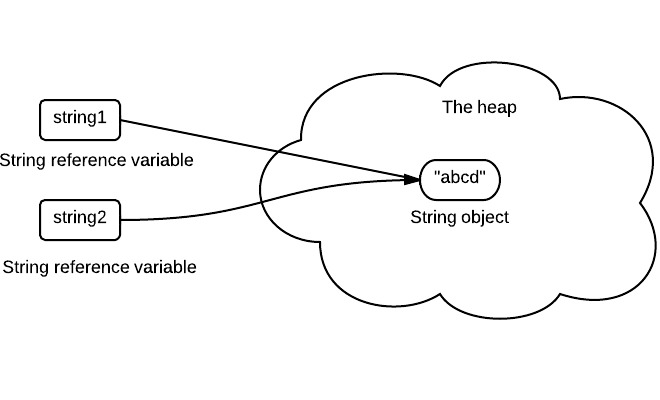Immutable Strings: A Secret Part in Ensuring Information Uniformity and Reliability
In the world of information management, the importance of unalterable strings can not be overstated. The concept of immutable strings goes beyond plain formality; it is a linchpin in the complex internet of data governance.
The Principle of Unalterable Strings
Immutable strings, a fundamental concept in shows, refer to strings that can not be customized once they are created. Essentially, once a string worth is appointed, any kind of operation that appears to modify the string in fact produces a brand-new string. This immutability ensures information uniformity and reliability in applications, as it stops unanticipated modifications to the original data.
Benefits in Data Uniformity
Data consistency is crucial in various elements of software application development, including database management, multi-threaded atmospheres, and dispersed systems (Why are strings immutable in Java?). Unalterable strings add considerably to attaining this consistency by protecting against data corruption as a result of concurrent accessibility. In scenarios where numerous procedures or strings communicate with the exact same data at the same time, immutable strings work as a protect against race conditions and synchronization problems
Moreover, the immutability of strings simplifies debugging and screening procedures. With unalterable strings, programmers can rely on that when a string is set, it will remain unchanged, making it much easier to trace the source of errors and guaranteeing that test cases generate consistent outcomes. This reliability in information taking care of ultimately results in much more steady and durable applications.

Carrying Out Immutable Strings
Ensuring the immutability of strings calls for a thoughtful strategy to their application in software advancement. One crucial technique is to design string courses in such a way that avoids alterations once a string object is developed. By making strings immutable, programmers can improve information uniformity and integrity in their applications.
To apply immutable strings successfully, designers should prefer developing new string things as opposed to customizing existing ones. This practice guarantees that as soon as a string is appointed a value, it can not be altered. Furthermore, any procedure that appears to modify the string must create a new string with the desired modifications as opposed to modifying the initial.
Furthermore, using unalterable strings can streamline concurrency management in multi-threaded atmospheres. Considering that unalterable strings can not be changed you could try here after creation, they can be safely shared amongst multiple threads without the threat of data corruption.
Function in Integrity Guarantee
In software development, the use of unalterable strings plays an important function in ensuring the integrity of data procedures. Unalterable strings, when produced, can not be customized, making sure that the information they represent continues to be regular throughout the application's implementation. This immutability residential property gives a degree of guarantee that the information being refined will certainly not be accidentally transformed, bring about unanticipated end results or mistakes in the system.
By integrating unalterable strings right into software application layout, designers can boost the integrity of their applications by minimizing the dangers connected with mutable information - Why are strings immutable in Java?. Unalterable strings assist in protecting against information corruption or unintentional adjustments, which can be especially important next when handling sensitive information or when information honesty is extremely important
Moreover, making use of unalterable strings streamlines concurrent handling, as multiple strings can safely access and share string data without the danger of one thread modifying the web content while one more is reviewing it. This aspect adds significantly to the total integrity of the software application system, ensuring regular and predictable habits in information handling operations.
Applications and System Assimilation
The seamless integration of immutable strings right into various applications and systems is essential for making certain robust information consistency and dependability across varied technical environments - Why are strings immutable in Java?. Immutable strings play a vital duty in enhancing the integrity of information exchanges and communications within complex software application ecosystems. By incorporating immutable strings into applications, programmers can alleviate the threats related to data tampering, unapproved modifications, and unintentional changes, thereby fortifying the general safety and security posture of the system
In the context of system assimilation, immutable strings act as a fundamental component for developing safe communication channels and promoting seamless data transfers between different parts. Their immutable nature ensures that data transmitted in between systems stays the same and proven, decreasing the likelihood of disparities or errors that could jeopardize the honesty of the entire system. In addition, unalterable strings can improve interoperability between inconsonant systems by giving a standardized style for information representation, making it possible for more efficient data handling and exchange procedures across interconnected systems. By adopting unalterable strings in applications and system assimilation procedures, organizations can strengthen their data framework and maintain the dependability and consistency of their info properties.
Final Thought
Finally, unalterable strings play a vital duty in preserving data consistency and integrity in various applications and system assimilations. By making sure that strings can not be changed as soon as developed, the stability of data is protected, decreasing the threat of mistakes and inconsistencies. Applying unalterable strings can dramatically improve the dependability of systems, inevitably causing even more precise and dependable data processing.
